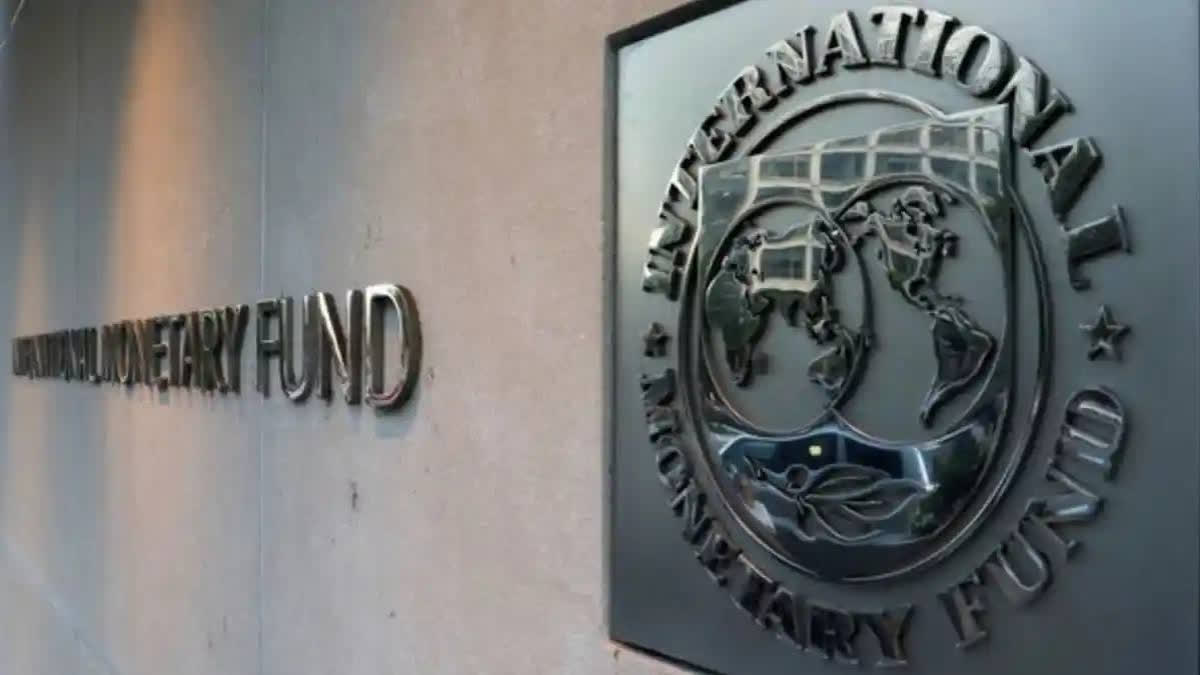Washington: Growth in India is projected to remain strong at 6.5 per cent in both 2024 and 2025, the International Monetary Fund said on Tuesday in its latest World Economic Outlook update. The report pegged global growth at 3.1 per cent in 2024 and 3.2 per cent in 2025.
Growth in China is projected at 4.6 per cent in 2024 and 4.1 per cent in 2025, with an upward revision of 0.4 percentage points for 2024 since the October 2023 World Economic Outlook, the IMF said, adding that in the US, growth is likely to fall from 2.5 per cent in 2023 to 2.1 per cent in 2024 and 1.7 per cent in 2025. "Growth in India is projected to remain strong at 6.5 per cent in both 2024 and 2025, with an upgrade from October of 0.2 percentage point for both years, reflecting resilience in domestic demand," the IMF said in its latest report that was released in South Africa.
The IMF report reflects that India remains the fastest-growing country among emerging economies. "The clouds are beginning to part. The global economy begins the final descent toward a soft landing, with inflation declining steadily and growth holding up. But the pace of expansion remains slow, and turbulence may lie ahead," Pierre-Olivier Gourinchas, Chief IMF Economist said in a blog post. The IMF, he said, expects slower growth in the US, where tight monetary policy is still working through the economy, and in China, where weaker consumption and investment continue to weigh on activity.
In the euro area, meanwhile, activity is expected to rebound slightly after a challenging 2023, when high energy prices and tight monetary policy restricted demand. "Many other economies continue to show great resilience, with growth accelerating in Brazil, India, and Southeast Asia's major economies," Gourinchas said. The IMF said global headline inflation is expected to fall from an estimated 6.8 per cent in 2023 (annual average) to 5.8 per cent in 2024 and 4.4 per cent in 2025.
The global forecast is unrevised for 2024 compared to October 2023 projections and revised down by 0.2 percentage points for 2025. Advanced economies are expected to see faster disinflation, with inflation falling by 2.0 percentage points in 2024 to 2.6 per cent. In emerging markets and developing economies, inflation is projected to decline by just 0.3 percentage points to 8.1 per cent. Policymakers' near-term challenge is to successfully manage the final descent of inflation to target, calibrating monetary policy in response to underlying inflation dynamics and 'where wage and price pressures are clearly dissipating', adjusting to a less restrictive stance.
"At the same time, in many cases, with inflation declining and economies better able to absorb effects of fiscal tightening, a renewed focus on fiscal consolidation to rebuild budgetary capacity to deal with future shocks, raise revenue for new spending priorities, and curb the rise of public debt is needed. "Targeted and carefully sequenced structural reforms would reinforce productivity growth and debt sustainability and accelerate convergence toward higher income levels. More efficient multilateral coordination is needed for, among other things, debt resolution, to avoid debt distress, and create space for necessary investments, as well as to mitigate the effects of climate change," the report said.
- " class="align-text-top noRightClick twitterSection" data="">
Read More



